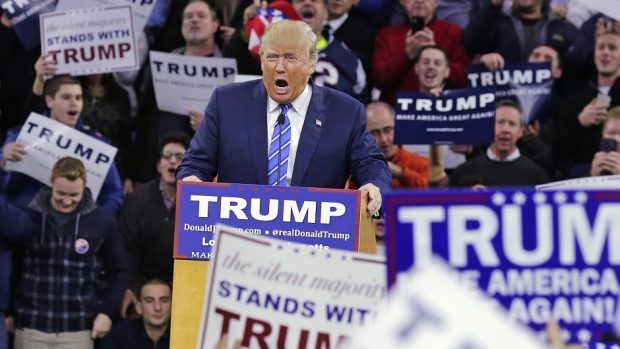MPs will debate a petition calling for Donald Trump to be banned from coming to the UK.
More than 500,000 people signed the online document which was set up after the US Republican Presidential hopeful said Muslims should be blocked from entering America.
Labour MP Paul Flynn, a member of the Commons petitions committee that decided to grant the debate, will lead the discussion in Westminster Hall, on January 18.
A counter-petition entitled Don’t Ban Donald Trump from the UK, which has just under 40,000 signatures, will also be debated by MPs on the same day.
The New York-based businessman, who is seeking the Republican nomination, was widely condemned after he called for a “total and complete shutdown” of Muslims coming to the US in the aftermath of a terror attack in California.
He was stripped of his Robert Gordon University honorary degree and Nicola Sturgeon withdrew the tycoon’s membership of the GlobalScot network.
Labour MP Helen Jones, who chairs the committee, said it was not expressing a view by scheduling the debates on the petitions.
She added: “It simply means that the committee has decided that the subject should be debated. A debate will allow a range of views to be expressed.”
A petition on the UK parliamentary website must be considered for debate if it exceeds 100,000 signatures.
The one calling for Mr Trump to be banned is understood to be the most popular ever, beating the previous record holder which called on the UK to accept more asylum seekers and increase refugee support.
At the time, Prime Minister David Cameron branded Mr Trump’s comments “divisive, unhelpful and quite simply wrong”, but he rejected the call for the businessman to be barred.
The Tory leader said if he came to the UK he would “unite us all against him.”
Chancellor George Osborne had previously argued the best way to challenge Mr Trump was to engage in “robust and democratic” argument.
The news the debates are to take place came as it emerged Mr Trump has given some of his most divisive proposals a starring role in his first major TV advert.
With the opening 2016 primary contest four weeks away, he has thrown the spotlight on his plan to ban Muslims from entering the US – temporarily and with exceptions – and to build a wall along the southern border.
